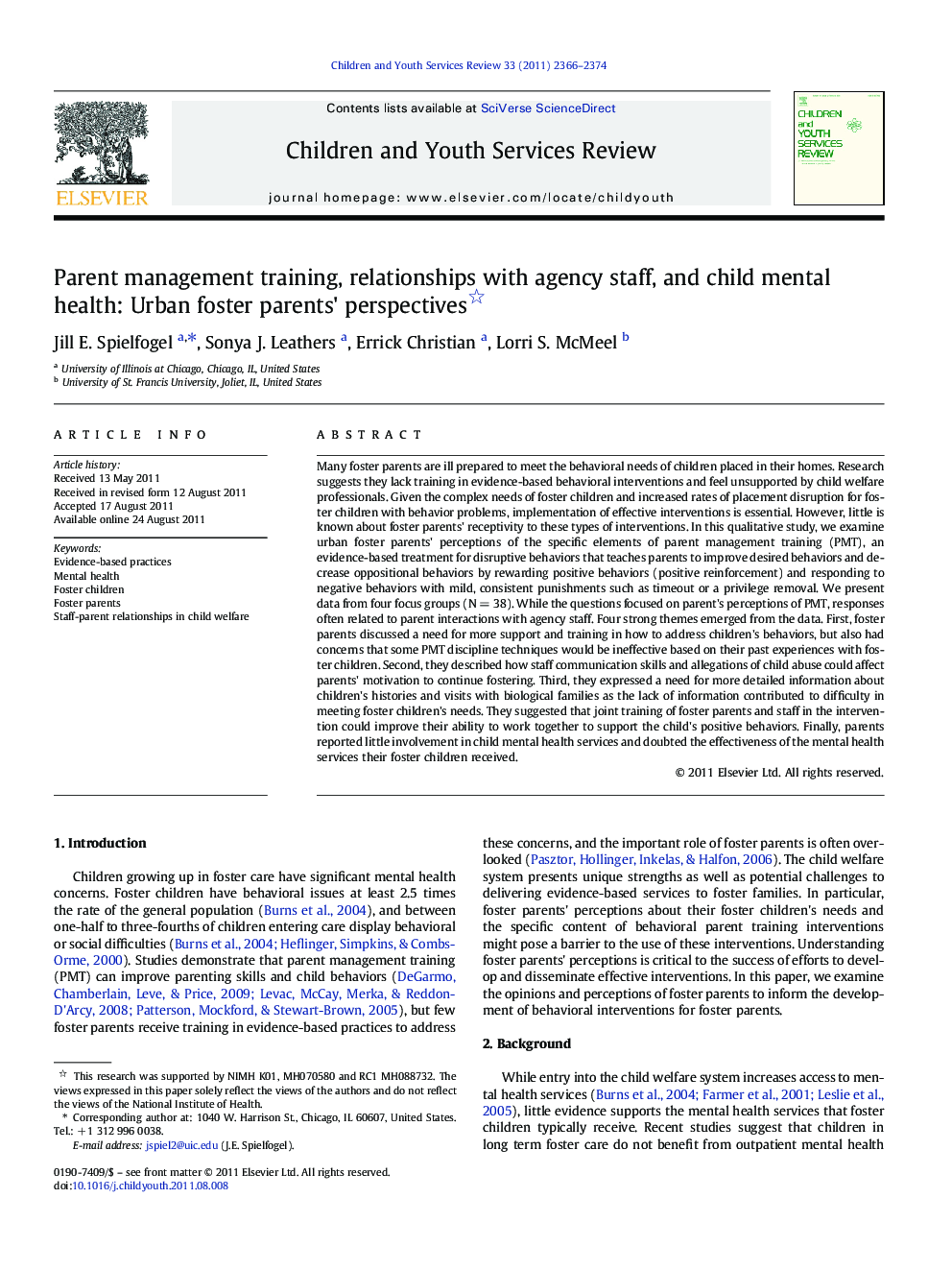| کد مقاله | کد نشریه | سال انتشار | مقاله انگلیسی | نسخه تمام متن |
|---|---|---|---|---|
| 346240 | 617806 | 2011 | 9 صفحه PDF | دانلود رایگان |

Many foster parents are ill prepared to meet the behavioral needs of children placed in their homes. Research suggests they lack training in evidence-based behavioral interventions and feel unsupported by child welfare professionals. Given the complex needs of foster children and increased rates of placement disruption for foster children with behavior problems, implementation of effective interventions is essential. However, little is known about foster parents' receptivity to these types of interventions. In this qualitative study, we examine urban foster parents' perceptions of the specific elements of parent management training (PMT), an evidence-based treatment for disruptive behaviors that teaches parents to improve desired behaviors and decrease oppositional behaviors by rewarding positive behaviors (positive reinforcement) and responding to negative behaviors with mild, consistent punishments such as timeout or a privilege removal. We present data from four focus groups (N = 38). While the questions focused on parent's perceptions of PMT, responses often related to parent interactions with agency staff. Four strong themes emerged from the data. First, foster parents discussed a need for more support and training in how to address children's behaviors, but also had concerns that some PMT discipline techniques would be ineffective based on their past experiences with foster children. Second, they described how staff communication skills and allegations of child abuse could affect parents' motivation to continue fostering. Third, they expressed a need for more detailed information about children's histories and visits with biological families as the lack of information contributed to difficulty in meeting foster children's needs. They suggested that joint training of foster parents and staff in the intervention could improve their ability to work together to support the child's positive behaviors. Finally, parents reported little involvement in child mental health services and doubted the effectiveness of the mental health services their foster children received.
► Foster parent focus groups were held at an urban child welfare agency.
► Parents were asked about their perceptions and usefulness of PMT.
► Parents lacked training in how to address child behaviors.
► Parents wanted to be included in mental health treatment of their children.
► Parents recommended joint training with staff to better support foster families.
Journal: Children and Youth Services Review - Volume 33, Issue 11, November 2011, Pages 2366–2374